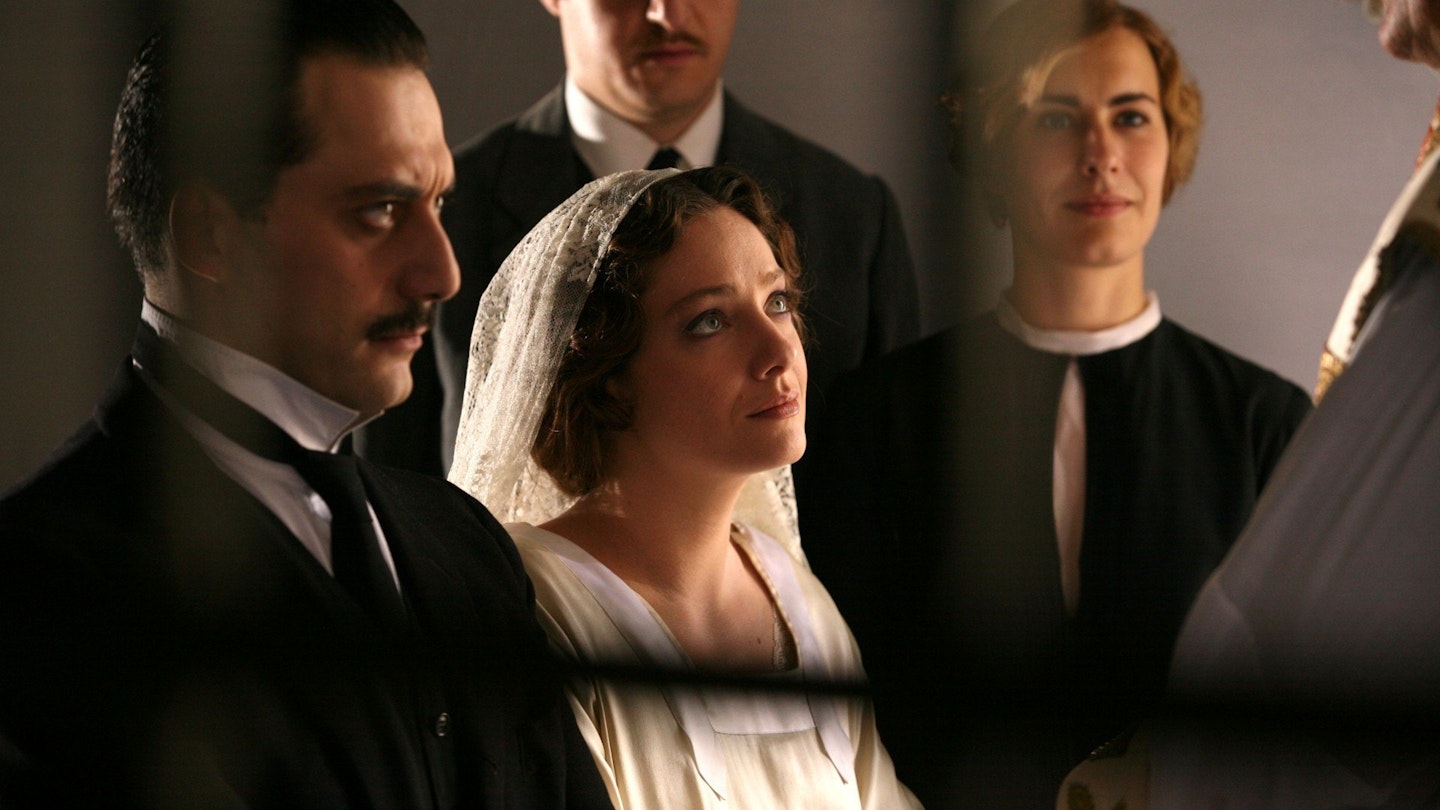Veteran Italian Director Marco Bellocchio’s Vincere (literally ‘Win’) kicks off with an audacious opening gambit. Speaking to a small, tightly packed audience, a young Benito Mussolini (Filippo Timi), then a rising Socialist and union activist, gives God five minutes to prove His existence by challenging the Almighty to strike him down. It’s a provocative opening for Bellocchio’s bold retelling of a little-known episode in Italian history that may run out of steam in its final act, but for the most part is thrilling filmmaking, full of ideas, invention and committed performances delivered through a focus that swings from the wildly operatic to the movingly intimate.
Watching Mussolini take on God is a smitten Ida Dalser (Giovanna Mezzogiorno), and it is this central obsession that forms the nub of Bellocchio’s story. Told in a shifting timeline between 1907 and 1914, Bellocchio juxtaposes the hot, one-sided relationship between Dalser and Mussolini (he refuses to look at her during vigorous sex, she sells all her goods and chattels to finance his newspaper) with his switch from socialism to fascism (a sequence in which he incites a riot amongst pacifists in a cinema is gripping). At this point, after Ida marries him and bears him a son, Mussolini marries again, and seeks to suppress and deny Ida — the correlation between the personal and political could not be clearer.
Eschewing dull biopic grammar, Bellocchio charts history through excessive flamboyance, slurring fascist slogans and cartoon silhouettes of soldiers in lockstep across the screen. Yet this isn’t just empty rhetoric: Bellocchio’s stylings course with intelligence. Watch how, once Mussolini renounces Ida, we only see him as she sees him in newsreels, not just as historical backdrop but pivotal narrative point-making.
The film misses this kind of stylistic blitzkrieg and Timi’s forceful presence when it moves into the home straight, getting mired in a one-note depiction of Dalser trying to rejoin the outside world. What keeps the film compelling is Mezzogiorno, who turns Ida into a towering figure of righteous indignation as she moves through a series of asylums, fighting not to be written out of Mussolini’s story — and therefore history.
